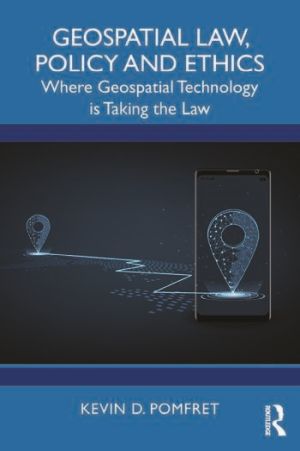
This comprehensive textbook identifies the emerging legal, policy and ethical considerations associated with the collection, analysis, storage and distribution of data that can be tied to location on earth – otherwise known as ‘geospatial information’.
Drawing on the author’s extensive professional, legal and scholarly experience in the geospatial community, the book explains how these issues cut across both legal and technology domains, and how they impact geospatial information management across the globe. While focused on the USA, the framework and analysis can be applied to other nations and legal systems. Key topics covered include intellectual property, privacy, data protection, data quality and liability, security, ethical issues, licensing, and the impact of existing and emerging technologies, such as artificial intelligence, satellites, drones, software, machine learning, small satellites and 5G. The book includes helpful features, such as a glossary of key legal terms and further reading, and is accompanied by digital supplements in the form of PowerPoint slides for each chapter.
Geospatial Law, Policy and Ethics is the ideal companion for advanced undergraduate and graduate-level students of Geographic Information System (GIS), remote sensing geospatial intelligence, geospatial studies and spatial data science courses. It will also be of interest to geospatial professionals employed in industry, government or research.